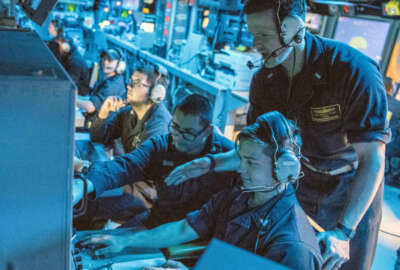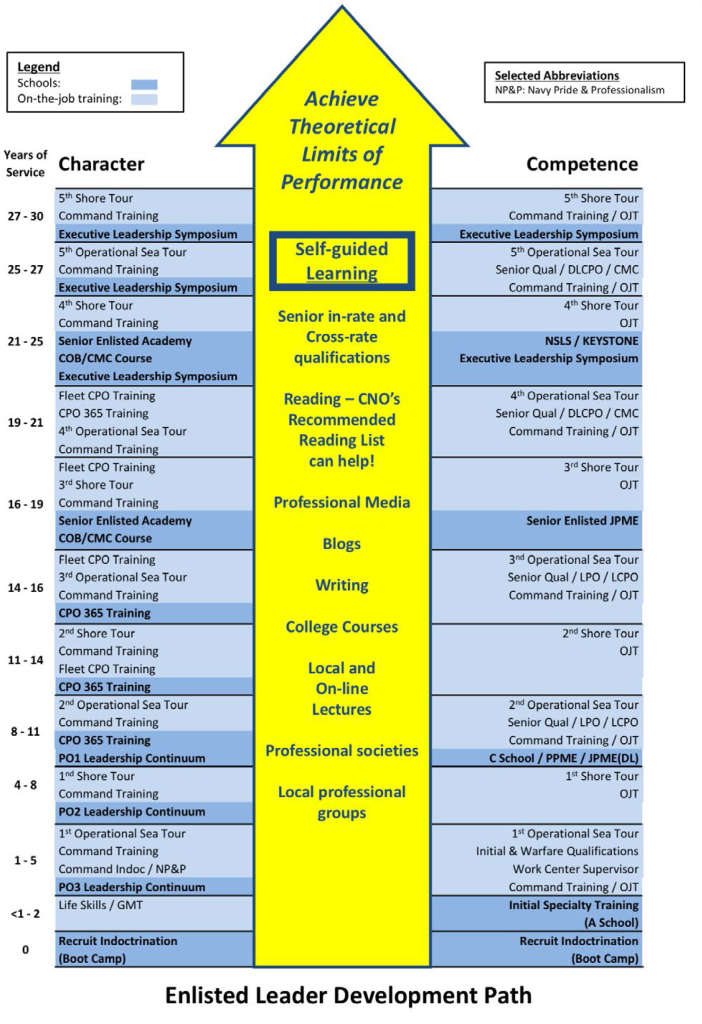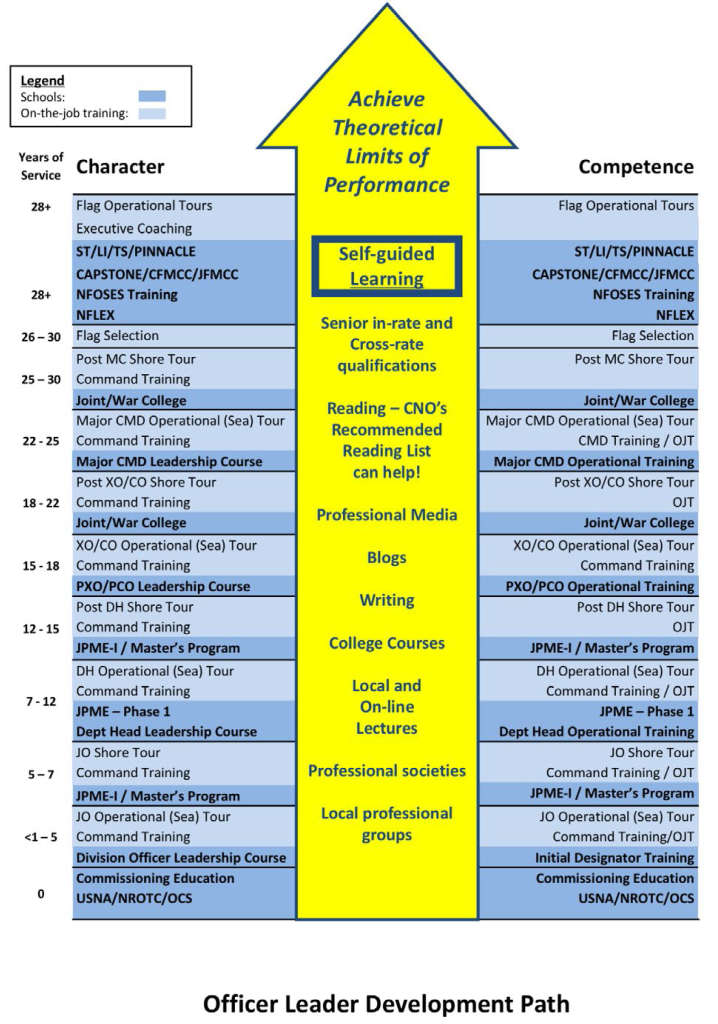
Navy tries to foster that ‘X factor’ in new leaders
The Navy is revamping its training paths for officers and enlisted leaders to better emphasize personal attributes that could be beneficial to the service.
The Navy is revamping its training paths for officers and enlisted leaders to better emphasize personal attributes that could be beneficial to the service.
The new framework for talented sailors focuses on developing character along with competency in skills as previous programs did.
“Competence and character are so tightly intertwined that they must be strengthened together. The Navy has a robust program of schools, on-the-job training, and self-guided learning. By executing this framework, our Navy will produce leaders and teams who learn and adapt to achieve maximum possible performance,” stated the Navy’s Leadership Development Framework, released on Jan. 25.
The plan expands on the work former Defense Secretary Ash Carter started during his tenure of breaking down some of the uniformity in military leaders and making room for creativity.
The Navy framework uses three methods to move down the path of leadership development. Leaders will use schooling, job training and self-guided learning to ascend to higher levels in the service.
To foster the “character” side of sailors, the Navy will lay a foundation by making institutional values and expectations clear.
Enlisted ranks will take local classes made up of lectures, group discussions and coaching. The pinnacle of enlisted leadership is the senior enlisted academy.
Officers will go through formal leadership schooling associated with major career milestones at the Naval Leadership and Ethics Center. The courses will include department head, commanding officer and major command classes.
Outside of the classroom, leaders will be expected to show character on the job too.
“Character applies in an operational setting — it’s not just for the classroom. The best leaders mention it at briefs, during execution, and during debriefs. They get out in front and avoid bad decisions. The strongest message comes through their personal example,” the framework stated.
Leaders will personally enrich themselves through a suggested reading list by the chief naval officer, writing blogs, taking college courses at night or online and joining professional societies.
The new framework is the Navy’s attempt to break out of the cookie-cutter mold of senior officials who are thinking inside what Ash Carter called the “five-sided box.”
As the military expands into less conventional domains like cyber and space, it needs leaders who are flexible, smart and talented.
The Army is very vocal about the changes it needs to make in its leadership and soldiers for future warfare.
More Navy News
“It’s going to put a premium on decentralized operations,” Milley said. “Our leaders then are going to have to be self-starters. They are going to have to have maximum amounts of initiative. They are going to have to have critical thinking skills well beyond what we normally think of today in our operations. They are going to have to have huge amounts of character so that they make the right moral and ethical choices with the absence of supervision under the intense pressure of combat. They are going to have to have a level of mental and organizational agility that is not necessarily current in any army really,” Army Chief of Staff Gen. Mark Milley said in October.
He added leaders will need higher endurance and senior leaders will need to trust lower-level leaders more because they will not be able to communicate with them in a degraded environment.
The Navy is also looking for leaders of that caliber.
“Navy leaders have become increasingly concerned that senior officers need additional kinds of expertise, besides those traditionally developed in naval officers, to be successful in commanding, leading, and managing the Navy enterprise,” stated a 2008 RAND Corporation study on Navy leadership.
The Navy framework stated the quickening pace of change and increasing complexity of the world increase the need for creative and industrious leaders.


Copyright © 2025 Federal News Network. All rights reserved. This website is not intended for users located within the European Economic Area.
Scott Maucione is a defense reporter for Federal News Network and reports on human capital, workforce and the Defense Department at-large.
Follow @smaucioneWFED



